Bahamas News
Bahamas PM in House of Assembly today; new COVID-19 information, new measures
Published
4 years agoon
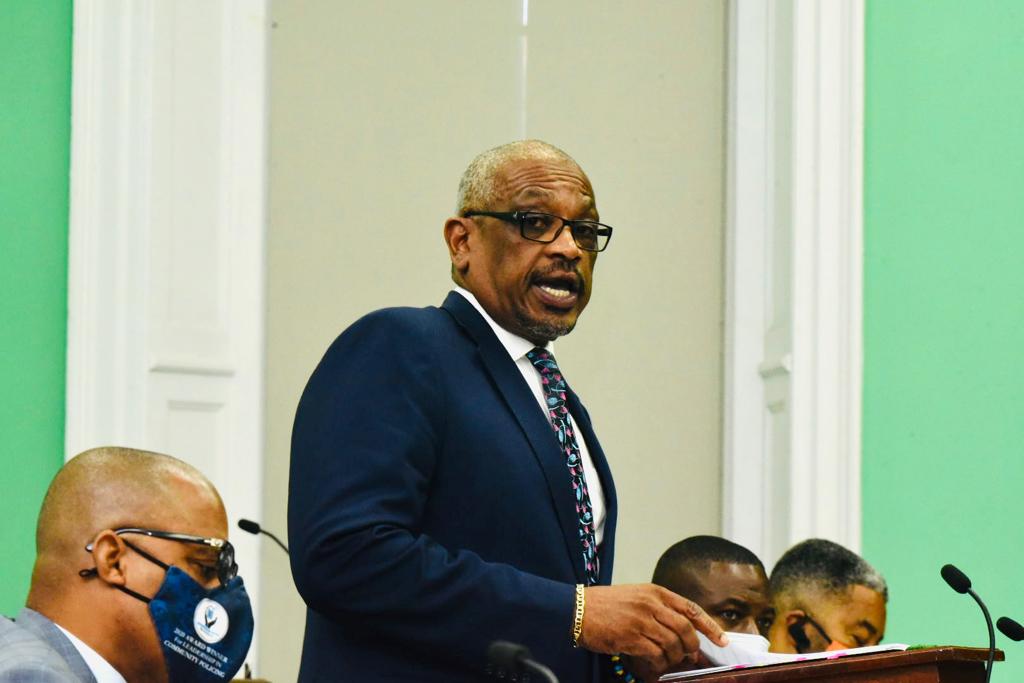
November 18, 2020 – Mr. Speaker:
“I wish to provide the House and the country with a general update on the nation’s ongoing efforts to respond to the COVID19 pandemic.
Recently, I announced restrictive measures for mainland Exuma, and mainland Eleuthera, due to exponential increases in new cases of COVID-19 on those islands.
As of yesterday, the 17th of November, there were a total of 99 confirmed cases of COVID-19 on Exuma, and on Eleuthera, a total of 143 confirmed cases. A team from the Ministry of Health made up of members of the contact tracing team and the surveillance unit is currently on the ground on Exuma to assess the COVID-19 situation.
Health officials report that from the analysis of the map of cases, the spread is occurring throughout Exuma. From interviews conducted in the community by the health team, some people are still having gatherings and residents believe this is largely contributing to the spread of COVID-19 on Exuma.
A health team is scheduled to return to Eleuthera next week to complete a follow-up assessment and to determine the impact of the recently imposed restrictive measures on that island. On Grand Bahama, health officials report that the recent increase in cases on the island is due to a recent outbreak at an industrial company.
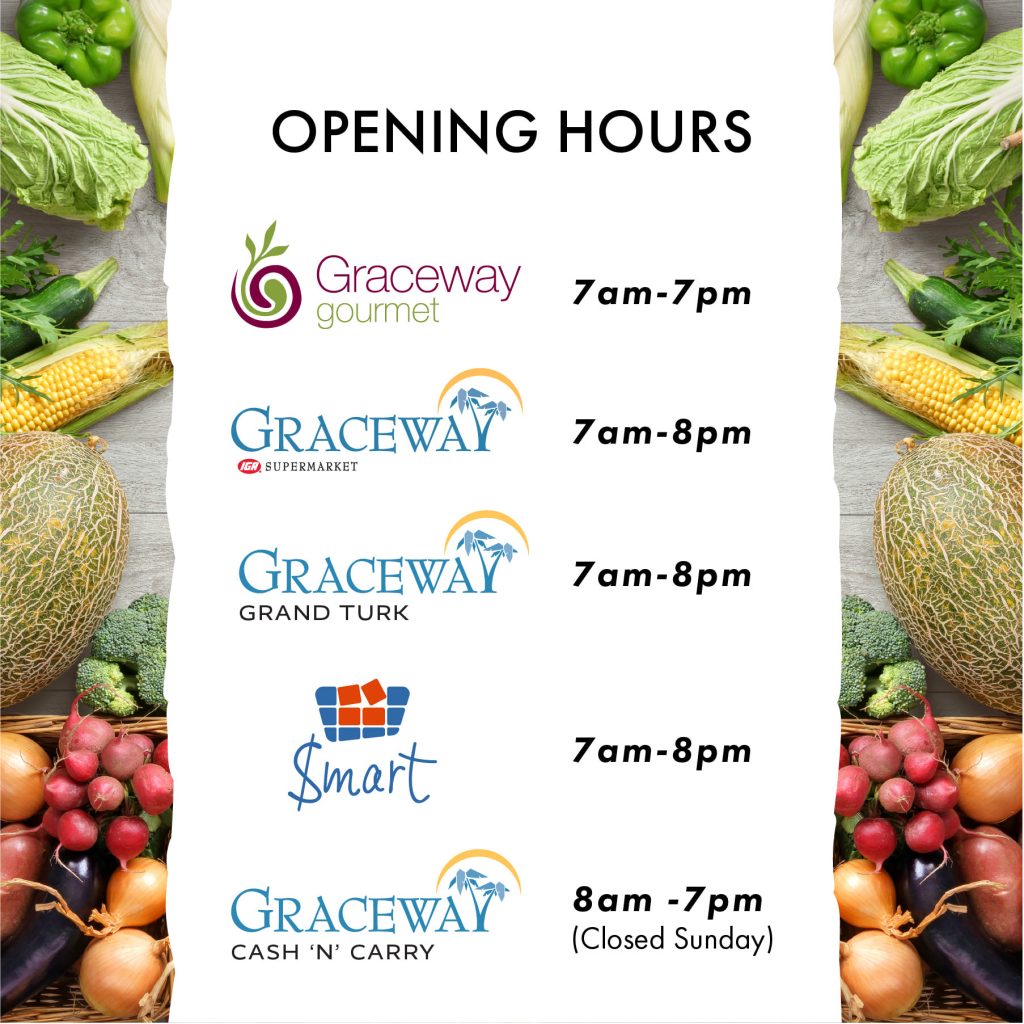
The industrial site has been closed, and a meeting is expected to be held this week with the industrial group and their subcontractors to review the analysis of the outbreak at that site.
All positive cases from the site remain in quarantine or isolation. Health officials continue to closely monitor Exuma, Eleuthera and Grand Bahama.
The Ministry of Health will provide a further update at its press briefing. I wish to remind every Family Island and cay, especially those not under curfew, to continue to abide by health protocols, including wearing a mask, adhering to physical distancing and hand washing regularly. Please also avoid large gatherings and social events. As we have seen on other islands, and as domestic and international tourists begin to travel to more Family Islands, there is a greater likelihood of the spread of the virus.
To avoid restrictive measures, I ask every Bahamian, no matter which island, settlement or community you live in, to please follow the well-known health care measures. Wearing a mask is a lifesaving measure just as are antibiotics and medicine for other health challenges and diseases. No responsible person would tell someone with high blood pressure, diabetes or an infection not to take their medicine.

Just like these medicines, the public health measures help to prevent infection and to save lives. We wear seatbelts while driving and flying for our protection. We should also wear masks and avoid large social gatherings to protect our own health and the health of others.
Let me briefly clarify two frequently asked questions in the public domain. Church services in the sanctuary are permitted during the week on New Providence and Abaco, in accordance with the guidelines established by the Bahamas Christian Council. Memorial services and services in funeral parlors are not permitted on New Providence and Abaco.
Mr. Speaker: Most of the world, including popular tourist destinations, have put in place extensive protocols for tourists and for returning citizens and residents who have travelled overseas. The Bahamas is no different. We are following various international protocols and adjusting them as necessary.
As we are set to receive an increase in international visitors next month, I wish to repeat that everyone traveling into The Bahamas from the U.S. or any other destination must have a valid negative COVID-19 RT-PCR Test.
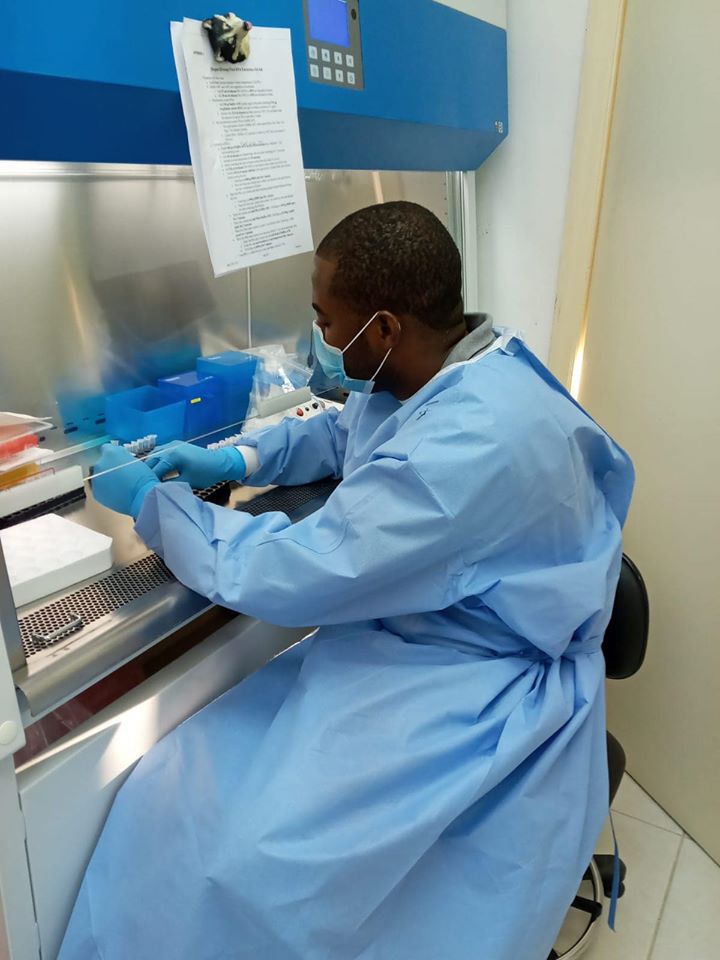
This Test must be taken no more than five days from the day of travel. We are getting many reports of Bahamians having a COVID-19 RT-PCR test taken in The Bahamas prior to their travel overseas and then attempting to use those results for their Travel Health Visa and return to The Bahamas.
I wish to be very clear and to remind Bahamians and residents travelling overseas that no COVID-19 RT-PCR test taken in The Bahamas is valid for a Travel Health Visa in order to return to The Bahamas.
Mr. Speaker: Everyone, including citizens, residents and visitors, entering The Bahamas must also have the international travel health visa.
These new travel and entry protocols have now gone into effect. These create a two-pronged approach to fight COVID-19, inclusive of a health screening survey and testing. For anyone, including citizens, residents and visitors, staying longer than four nights and five days in the country, a rapid antigen test must be administered on the fifth day of their arrival in The Bahamas. There are places to obtain these tests throughout The Bahamas.
Where there are no private medical facilities, government clinics may be used. In addition to these public health measures, the Ministry of Health and Ministry of Tourism have launched a daily on-line health screening survey. This survey is provided through the travel.gov.bs website.
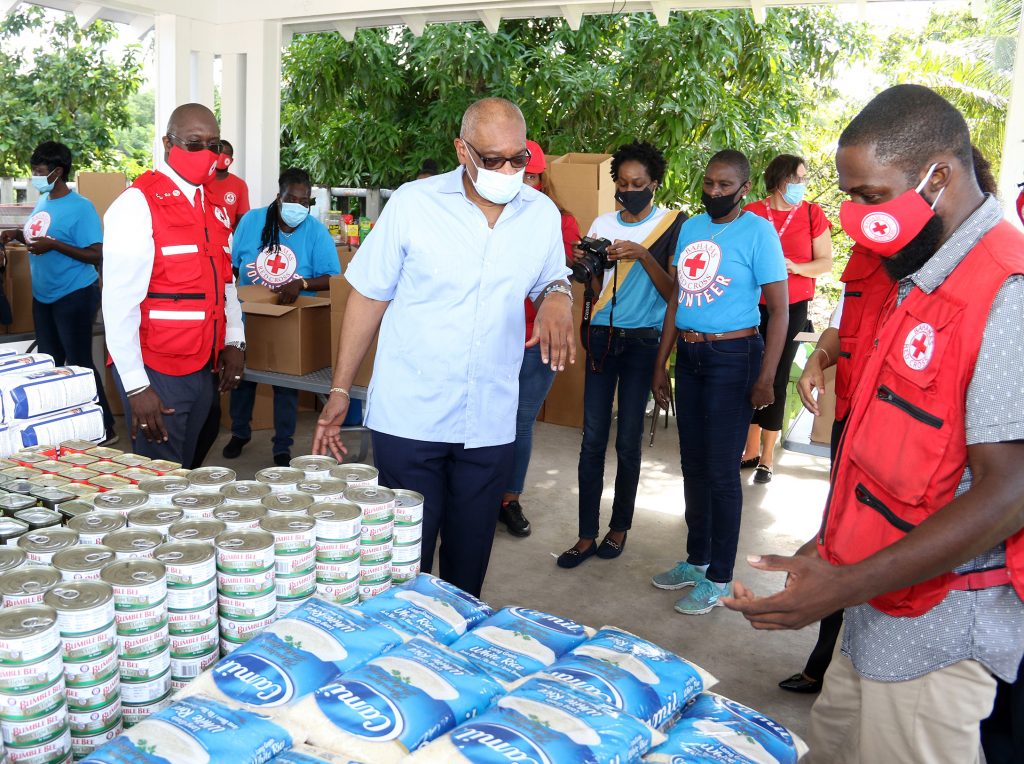
All individuals, including citizens, residents and visitors, traveling into The Bahamas, will be required to complete this short survey on-line each day for approximately 14 days. The health screening survey is an important part of preventing the spread of COVID 19 and ensuring that The Bahamas is safe for all to enjoy. Participation in this survey is mandatory. Those who fail to comply will be subject to penalties. Citizens, residents and visitors who do not complete the survey will be fined $100 per day or one week in prison.
For visitors, they will also be deported.
The health survey will enable the further monitoring of and response to any possible instances of COVID-19. The Ministry of Health will also be studying the results of the health survey to scientifically test and to evaluate the health protocols.
Mr. Speaker: Very soon, a domestic travel health visa will also be implemented for travel from New Providence, Grand Bahama, Abaco, mainland Exuma, mainland Eleuthera and Bimini to other islands in the country. This does not apply to travel between Exuma and its Cays and Eleuthera and its surrounding islands.
The domestic travel health visa will replace the 14-day quarantine requirement for those traveling from New Providence. The domestic travel health visa, like the international travel health visa, will include the same two-pronged approach to fight COVID-19, inclusive of the daily health screening survey and rapid antigen testing on the fifth day.
This domestic travel health visa must be presented to air and sea carrier operators before boarding an aircraft or marine vessel. If this requirement is breached, the carrier or owner of the vessel is subject to a fine of $2,000 for every passenger travelling without the domestic travel health visa.
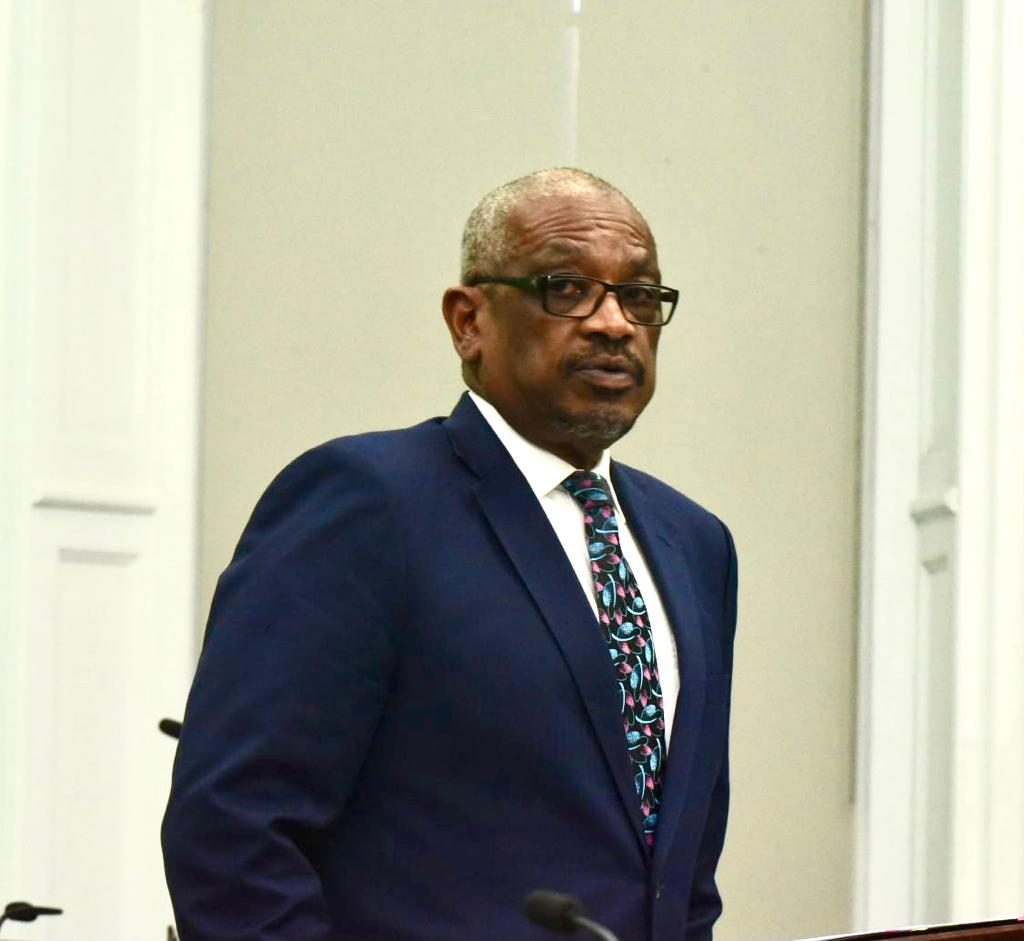
The passenger will also be subject to a fine of $1,000.
I wish also to note that for the time being, a negative COVID-19 RT-PCR test is required only for travel from New Providence, Grand Bahama and Exuma.
Mr. Speaker: We are fortunate in The Bahamas. Our public health measures have worked and are working. We have brought the virus numbers down in the pandemic’s second wave. However, across North America and Europe cases are surging at a record pace. S
ome are saying that the coming winter will be: “a disaster”, “a dark winter” and “hell.” Hospitalizations are so much on the rise that in some jurisdictions they have run out of hospital beds. Large field hospitals have been erected to take care of the overwhelming number of sick people. Deaths have increased too.
Some jurisdictions that did not or refused to require masks, are now mandating mask wearing, something The Bahamas did at the beginning of the pandemic. Countries that did generally well in the first wave, including in the developed world, are now experiencing an alarming increase in cases.
In response to the surge in the Americas and Europe, countries and jurisdictions are implementing other aggressive restrictions. These range from curfews and selective closures all the way to full national lockdowns for a period of many weeks. What is deeply concerning is that public health experts expect conditions to worsen as it gets colder and more people are indoors.

It is important that as a people we watch responsible and fact-driven news and keep informed as to what is happening globally. The Bahamas is doing well in its pandemic response. We should be grateful for this. We have battled through the waves, learning what works and what does not. We have refined our policies to allow for as much opening up as possible. And when the conditions call for tightening, we do so only as much as is necessary.
Bahamians should be proud of their country and our health experts and medical personnel. We should be proud that this little Bahamas is fighting through the worst global public health crisis in 100 years.
Mr. Speaker: As a result of the extraordinary spike in cases in North America and Europe – and the ongoing challenges in the Americas as a whole – as Prime Minister, I advise all Bahamians not to travel outside of the country at this time unless for an emergency. There are several reasons why I offer this advice. The record number of cases in the northern countries means there is significant virus transmission there. Travelling to a COVID hotspot could cause you to catch it.
Additionally, as I have mentioned, many countries have overwhelmed hospital systems. If you get sick in a foreign country that is overwhelmed by COVID-19, it might be very difficult to get medical treatment. Additionally, as we saw in the first wave, when virus cases surge countries may quickly change their travel policies.
Borders could shut suddenly with no set time as to when they might re-open. Imagine if someone decides to take a four-day pleasure trip and only carry enough money for that. Then all of a sudden the country closes its borders for months. How would they take care of themselves? How would they afford food and accommodation? When would they be able to come home? It is exceptionally risky to leave The Bahamas at this time. Please, I beg and plead with all Bahamians to stay at home, unless it is absolutely necessary to travel overseas.
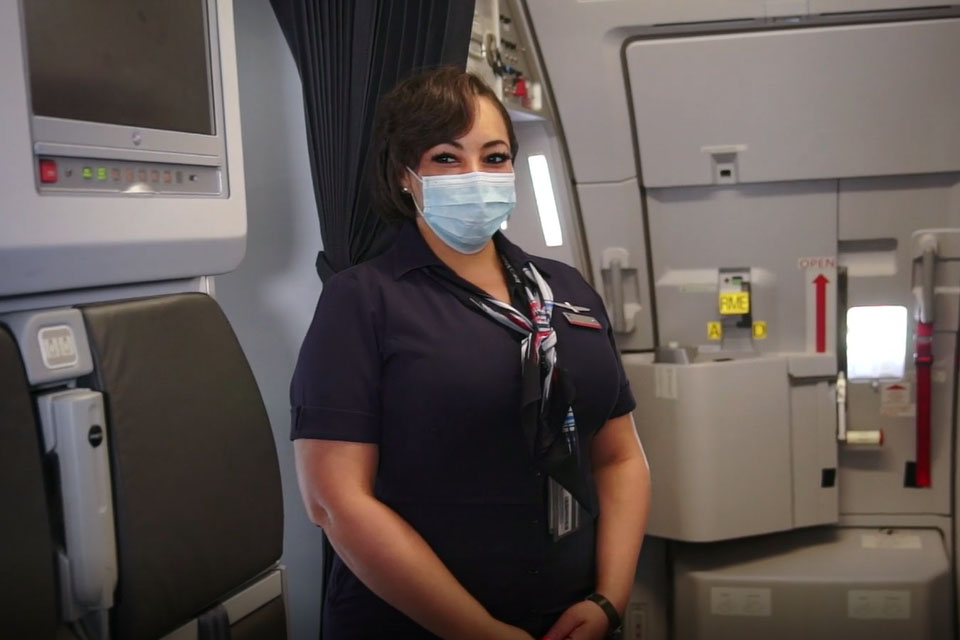
I know there is COVID-fatigue. I know that many people want a break. If someone needs to take a break, they might consider going to one of our Family Islands where travel is permitted, following the public health guidelines.
I ask Bahamians to spend that money in The Bahamas with Bahamian businesses that employ Bahamians. They will have a good time and will help our economy. We should be careful and sensible when it comes to where we travel. We could have a very difficult third wave if we are lax in our behavior and in our travels. If you have to go overseas because of an emergency, please wear a mask, maintain physical distancing, avoid large gatherings, and wash your hands thoroughly and often.
Mr. Speaker: We are progressing through the pandemic. There is increased hope that medical innovations are on the way to bring it to an end. In recent weeks, there were two encouraging announcements in the United States regarding vaccine candidates. Both vaccines demonstrated high levels of success in phase three trials. There is hope that medical frontline workers in the U.S. may begin to be vaccinated as soon as next month.
While we all should be pleased with this success, we must be very realistic with our timelines. It will take time before newly approved vaccines in the developed world become available in the developing world. We are working with the World Health Organization and others to secure vaccines for The Bahamas.
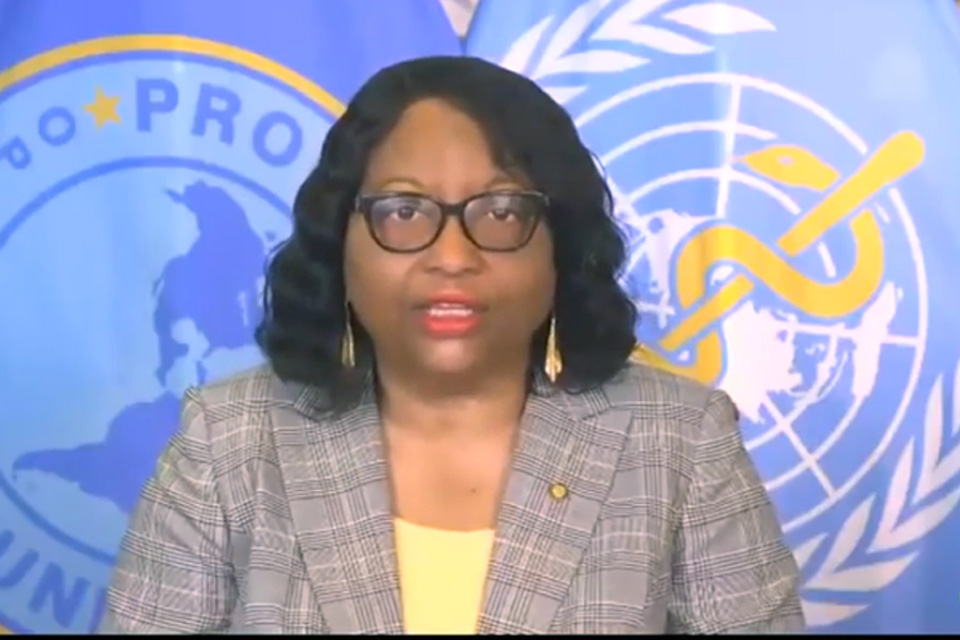
Until that time, we must keep up with our public health measures of mask wearing, physical distancing, and hand washing and sanitizing. These measures work. They are saving lives. The virus has caused restrictions and disruption all over the world. The virus has slowed economic activity at different times and to different degrees all over the world. Despite the difficulty of the times, I am confident that The Bahamas will overcome.
Most of our people largely comply with the public health measures, and I thank them for following the public health measures. Our people are resilient. Our people are hardworking. Our people will get through this together.
The COVID-19 pandemic has been difficult but it has not broken our spirit to thrive and prosper. The truth is that The Bahamas is doing much better than many countries in the world. It is truly sad and deeply unfortunate that some people aggressively opposed the most recent Emergency Orders passed in the House.
The measures in the Orders, which are similar to measures throughout the world, which helped to significantly bring down the number of cases and helped to save lives. On another occasion, I will have much more to say to those who opposed the extension of the emergency orders.
Mr. Speaker: With vaccines emerging, there is light and hope on the horizon. Bahamians should remain focused and stay positive in their outlook. They should ignore those who are endlessly and predictably negative, and those who always complain about The Bahamas, or root for failure. Instead, let us celebrate those who are helping our country to get through this unprecedented time.

The Bahamas is a great little country with extraordinary people. Many Bahamians are impressed at how our doctors, nurses and medical professionals have cared for the sick. Many are impressed with how our businesses have helped enforce the public health measures.
I am impressed with the NGOs who partnered with the Government-funded feeding programme to provide food for tens of thousands of Bahamians in need due to the economic fallout of the pandemic, and who are now focusing strictly on the most vulnerable in our communities.
To date, the Government of The Bahamas has spent approximately $18 million dollars on food assistance for our people. I am impressed with the new small business owners, who are turning crisis into opportunity and hope for the future. We have to fight for our future together!
Our future will be better once we keep working together in a spirit of love and unity. May God continue to guide and to bless our Bahamas. Thank you, Mr. Speaker.
Courtesy of the OPM Communications Unit
Magnetic Media is a Telly Award winning multi-media company specializing in creating compelling and socially uplifting TV and Radio broadcast programming as a means for advertising and public relations exposure for its clients.

You may like
-


India Feed Mill to save The Bahamas $12.5 Million
-
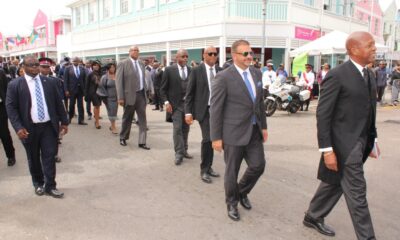

Bahamas Government to Introduce Measures to Address the High Cost of Living
-
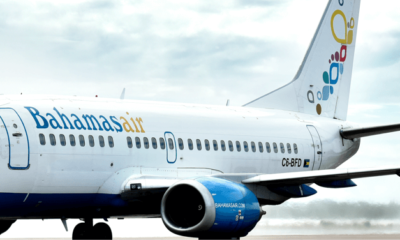

Bahamasair Money Questions, Managing Director says ‘not millions’ and ‘not missing’
-
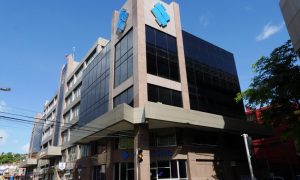

-


Bahamas agency responds to concern on Romaine Lettuce Recall
-
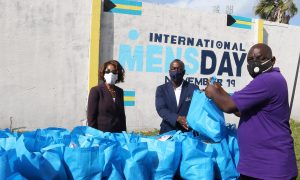

Bahamas Social Services Minister: Positive, meaningful partnerships between sexes are critical to nation’s success

NASSAU, The Bahamas – Participants of the Ministry of Social Services, Information and Broadcasting’s Camp Inclusion, including the camp’s student advocates, recently toured Nassau Cruise Port in a move designed to produce multiple benefits for the children.
Camp officials said the tour was part of the “moving away” from the old tradition of keeping children with disabilities locked away at home, and towards greater social inclusion for persons with disabilities – especially children.
Facilitated by the Community Affairs Division of the Ministry of Social Services, Information and Broadcasting at the Flamingo Gardens Family Life Centre, the camp is a collaborative effort between the Ministry, its Community Affairs and Disability Affairs Divisions, the Bahamas Coalition of Advocates for Disability Awareness and Service (BaCADAS), and the National Commission for Persons with Disabilities (NCPD). The majority of the Camp Instructors are persons with disabilities.
The Camp is in keeping with the Global Family Day 2024 theme of “Embracing Diversity, Strengthening Families,” and is an extension of the Ministry’s continued efforts to take the lead in ensuring access and inclusion for all — particularly the community of persons with disabilities — in every aspect of society.
Children with different levels and types of disabilities, along with student advocates, participated. Its focus was to ensure that participating youth learn about living with mobility and intellectual disabilities, advocacy, inclusion and accessibility.
Mr. Townsley Roberts, Deputy Executive Secretary of the Secretariat of the National Commission for Persons with Disabilities, said the visit is expected to have a number of expected outcomes.
the visit is expected to have a number of expected outcomes.
“It was very important to get the kids out and for them to see parts of the island that they rarely get a chance to experience,” Mr. Roberts said. “It was also an opportunity for them to feel a part of the Bahamian society because many times they are kept at home or just in the classroom (and) so this gives them a chance to spread their wings; an opportunity to dream. You never know, something they saw today can spark their imaginations and some may become artists, want to work in the tourism field or even just to try and experience a cruise. The ability to dream, to feel a part of society, to feel included, is important to the growth of all children, including persons with disabilities.”
Mr. Roberts applauded officials at Nassau Cruise Port for agreeing to the tour, which he said also allowed chaperones to inform the student advocates of some of the aspects that makes a facility accessible and inclusive.
“We are so happy that the Cruise Port allowed us the opportunity to come and tour the facility. As the name of the camp goes, what we are promoting is inclusion — total inclusion in all aspects of Bahamian society including the culture, and the open spaces. We want to make sure that all spaces are accessible and one of the things we know, because we had the opportunity to inspect the cruise port, is that the Port is accessible to persons with disabilities. So why not bring the children – including the student advocates — here as a means of helping them to understand and to witness first-hand what accessibility means and how it, or the lack of accessibility, affects the lives of persons with disabilities.”
Mr. Antoine Munroe, a Camp Instructor and employee of the Disability Affairs Division of the Ministry of Social Services, Information and Broadcasting, said access and inclusion ensures that every person is able to achieve the same outcomes whether in social, educational, or employment settings, and are the best methods of ensuring that persons with disabilities are given the same opportunities to participate in society. He applauded the inclusion of the student advocates in the camp.
“It is a passion of my own to see young people included and exposed to the life of persons with disabilities. Being able to tour the facility gave me an understanding of how I can use my cane to move about with a little assistance and I thought that was very, very smooth. I congratulate those persons who were able to cause this to happen, and also the persons in charge of the Nassau Cruise Port. I think this is a very good step in the right direction,” Mr. Munroe added.
Release: BIS
(BIS Photos/Patrice Johnson)
Bahamas News
National Commission for Persons with Disabilities gauges ‘accessibility’ at ZNS, BIS as part of ongoing inspection schedule
Published
19 hours agoon
July 26, 2024
NASSAU, The Bahamas – Inspectors attached to the Inspectorate Division of the Secretariat of the National Commission for Persons with Disabilities (NCPD) conducted assessments of the facilities at the Broadcasting Corporation of The Bahamas, and Bahamas Information Services, Tuesday (July 23) as part of their ongoing efforts to ensure that all public facilities, and those private facilities that provide services to members of the public, are accessible for all.
Both entities fall under the remit of the Ministry of Social Services, Information and Broadcasting as does the Secretariat.
The team was headed by Mr. Townsley Roberts, Deputy Executive Secretary, Secretariat of the National Commission for Persons with Disabilities, and included Mr. G. Michael Ellis, Senior Inspector; Mr. Wesley Paul, Inspector; and Mr. Thorne Clarke, Inspector.
Deputy Executive Secretary Roberts said the inspections were two-fold.
“Today we are inspecting ZNS and BIS which are both a part of the Ministry of Social Services, Information and Broadcasting to ensure that they are accessible because it is our belief that we cannot ask the public to do the things required by law without first ensuring that our entities are also in compliance,” Mr. Roberts said.
“People need to understand that accessibility to persons with disabilities is just as important as it is to persons without a disability. We want to be able to go about your day-to-day business without any obstacles in our way.
“What makes us disabled is the built environment, the barriers in front of us. If you remove those barriers, then we can do many of the same things persons without disabilities can do, and sometimes better. So this is what we are about. We are trying to make The Bahamas a place for all persons (and) where it will be comfortable for persons with disabilities to be able to manoeuvre through buildings and other spaces with the same ease and comfort expected by everyone else.”
The inspection team conducted assessments of wheelchair ramps, bathrooms, office spaces, and parking and reception areas, and measured doorway and hallway widths, in addition to other spaces to ensure that the requirements as set out in the Persons with Disabilities (Equal Opportunities) Act, 2014, are met.
Mr. Ellis, who spent 34 years as a member of the Royal Bahamas Police Force before retiring as a Senior Police Officer and who brings that same knowledge of the law to his new role, said the inspections help to ensure that the community of persons with disabilities enjoy the same rights to accessibility as any other citizen.
“Persons with disabilities, including those in wheelchairs, persons with walkers, crutches and those who use other assistive devices such as canes, should be able to move around just like everyone else,” Mr. Ellis said.
“We were looking to make sure that there were accessible bathrooms for both males and females, to ensure that there are proper ramps and that the ramps are the proper sizes, to ensure that all of the offices are accessible and all of the other areas are accessible for persons with disabilities.
“The Act says whatever we, as able bodied persons can do, a person with a disability should be permitted or allowed to do the same without any hindrance. Our job is to ensure that these facilities are in compliance with the Act.”
Once inspections are completed, Adjustment Orders are sent to those facilities/businesses found not to be in compliance with the Act, advising them of any faults, and providing a time-frame for compliance.
(BIS Photos/Anthon Thompson)
Release: Bahamas Information Services
PHOTO CAPTIONS
Header: – ZNS/BCB
Left to right:
1: G. Michael Ellis – Sr. Inspector (NCPD)
2: Thorne Clarke – Inspector (NCPD)
3: Townsley Roberts – Deputy Executive Secretary (NCPD)
4: Wesley Paul – Inspector (NCPD)
5: Carlton Smith – Chief Security Officer (BCB)
Insert: – BIS
Left to right:
1: Elcott Coleby – Director General (BIS)
2: Wesley Paul – Inspector (NCPD)
3: Townsley Roberts – Deputy Executive Secretary (NCPD)
4: Carlton Smith – Chief Security Officer (BCB)
5: Thorne Clarke – Inspector (NCPD)
6: G. Michael Ellis – Sr. Inspector (NCPD)
Bahamas News
Prime Minister Davis: Cannabis Reform Compendium 2024 ‘a long time coming’
Published
7 days agoon
July 19, 2024
NASSAU, The Bahamas – Prime Minister and Minister of Finance the Hon. Philip Davis said on July 15, 2024, that he spoke in support of the compendium of Bills to legalise the use of cannabis for medical and religious purposes, to decriminalise the possession of small amounts of cannabis, and to “regulate the cultivation, sale and use of cannabis and related products within our borders and to promote the health and safety of our people.”
“This has been a long time coming,” Prime Minister Davis said, during his Contribution to the Cannabis Reform Compendium 2024 Debate in the House of Assembly.
“For years, Bahamians have called for an administration to have the courage to step up and take this issue on in a decisive and responsible manner,” he added. “While many other countries, including nations within our region like Jamaica, Trinidad & Tobago, Antigua & Barbuda and Barbados, have taken steps toward decriminalisation and legalisation for medical use, Bahamians were left wondering when it would be our turn to modernise our local approach to cannabis.”
Prime Minister Davis noted that the national dialogue had been ongoing for the better part of a decade.
“Many people thought change was imminent when the Marijuana Commission began its work in October 2018, under the previous administration,” he said. “These efforts culminated in a preliminary report delivered in January 2020 and a final report delivered in August 2021.”
He added: “The Commission cited a wide range of in-person discussions and public opinion research, noting that there appeared to be widespread public support for the legalisation of cannabis for medical purposes. There was also healthy support for decriminalisation and an appetite for a strong regulatory and enforcement framework to ensure high standards for this new industry.”
Prime Minister Davis pointed out that the recommendations of the Commission called for legalisation for medical use, decriminalisation for small amounts, legalisation for use as a religious sacrament for members of the Rastafarian community, as well as strict regulations to ensure the quality and safety of the local cannabis product.
“In the PLP’s Blueprint for Change, we committed to developing a comprehensive regulatory framework for growing, harvesting, and exporting cannabis to create opportunities for Bahamians,” he said.
“The approach we developed to legislating and regulating Cannabis was informed by widespread research and consultation,” Prime Minister Davis added. “It was partially based on the CARICOM Regional Commission on Marijuana’s research and findings, as well as the approaches of other jurisdictions like Jamaica, Barbados, and Canada, where Cannabis has been legalised and regulated.”
He said that his Government’s goal was to ensure that it developed the most fair, balanced, and effective legislative and regulatory mechanisms, which would allow The Bahamas to reap economic and health benefits while promoting law and order and keeping its people safe through the introduction of stringent standards.
Prime Minister Davis added: “Once we felt that we had an adequate draft, we released the draft bills publicly, and we held a number of stakeholder consultation sessions, led by the Attorney General’s Office, in which we sat down with major stakeholder groups like healthcare providers, leaders of our church community, advocates for legalisation, leaders of the Rastafarian community – some of whom I see here today, as well as those who had concerns about the impact of legalisation and decriminalisation on the proliferation of usage. These varied opinions were taken into account and adjustments were made to achieve the most practical and effective approach that would work best for the Bahamian people.”
He pointed out that his Government also paid close attention to ongoing research on the issue – the most recent of which, he noted, was a survey conducted nationally by Public Domain in 2023, which indicated that 61% of the population supported the legalisation of cannabis for medical usage.
“It was clear that the times had changed, and it was time for our laws to change as well,” Prime Minister Davis stated.
He continued: “We’ve been hard at work since 2021. We knew this was not a process we could rush. There was a recognised need for carefulness and due diligence, but there was also a need to ensure that this new legislative and regulatory regime could be introduced and implemented within this term. We could not simply kick the can down the road for our next term the way other administrations did. No, we could not delay these changes – not when so many people had waited for years for real action to be taken.
“Today, the wait is over.”
Prime Minister Davis noted that his Government was taking action on behalf of all of the people who simply wanted the ability to legally consume medical cannabis to help them with their medical conditions.
“There are people with children suffering from epilepsy who have been praying for this moment,” he said. “There are people with glaucoma who want the opportunity to potentially alleviate their condition with a cost-effective and natural treatment.”
Prime Minister Davis added that there were people living with auto-immune conditions, chronic pain, anxiety, depression, and other ailments who were “waiting not-so-patiently for this day.”
“We are taking action for the many men and women living with criminal records for carrying small amounts of cannabis, and the many others who will be spared criminal records as a result of decriminalization,” he said.
others who will be spared criminal records as a result of decriminalization,” he said.
Prime Minister Davis stated that, as a society, his Government realised that the old approach taken against Cannabis in the War on Drugs in the 1980s and 90s did not necessarily reflect the current reality.
“Too many livelihoods have been lost because of a joint,” he said. “Too many lives have been handicapped and potentials lost.”
He added that when he was saying that, it was not his intent to excuse those who choose to break the law.
“After all, the law is the law; it must be respected and upheld,” Prime Minister Davis stated. “But we also recognise that the law is not static, it is dynamic. And the interpretation of the law and how it serves the greater good of society can change over time. I am confident that many lives will be changed for the better as a result of the criminal records that will be expunged.”
“Through these reforms, we are upholding the rule of law, making it clear that if you are seeking to supply others with cannabis illegally or engage in other unlicenced and illegal activities, you will be held accountable,” he added. “Everyone is welcome to participate within the legal and regulatory framework and only within that framework.
“Of course, as a part of this reform process, we are also taking action to recognise the rights and freedoms of Rastafarians to use Cannabis as a sacrament because it should not be against the law for our brothers and sisters of the Rastafarian faith to practice their religion.”
PHOTO CAPTION
Prime Minister and Minister of Finance the Hon. Philip Davis speaks, on July 15, 2024, during his Contribution to the Cannabis Reform Compendium 2024 Debate in the House of Assembly. (BIS Photos/Ulric Woodside)
Release: BIS
TRENDING
-

 Caribbean News7 days ago
Caribbean News7 days agoCayman Relief Mission to Hurricane hit CARICOM nations
-

 Caribbean News7 days ago
Caribbean News7 days agoCARICOM raising profile and priority of its Migration Policy; curbing challenges ‘a tall order’
-

 Caribbean News1 week ago
Caribbean News1 week agoHurricane Help; Money donated to Jamaica, Barbados, St Vincent & the Grenadines, St Lucia and Grenada
-

 Caribbean News7 days ago
Caribbean News7 days agoJamaica’s Hurricane Recovery Efforts Bolstered by Donation from Cayman Islands
-

 Bahamas News7 days ago
Bahamas News7 days agoPrime Minister Davis: Cannabis Reform Compendium 2024 ‘a long time coming’
-

 News7 days ago
News7 days agoWhat the new UK Prime Minister had to say about the Rwanda Deportation Plan at his first press conference
-

 Bahamas News1 week ago
Bahamas News1 week agoBahamas Celebrates 51st Independence – ‘United In Love & Service’
-

 News7 days ago
News7 days agoTurks & Caicos’ E.J Saunders part of Election Observer team in UK on July 4




